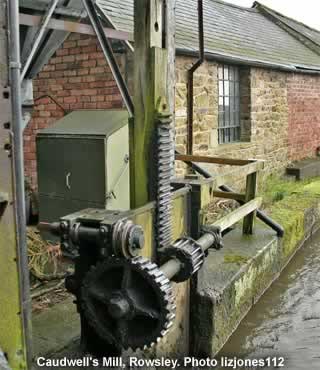Rowsley |
|
 |
|||
An old coach town on the banks of two rivers |
||
Rowsley sits at the exact point where the River Wye meets the River Derwent. In the past, there were water mills on both of these rivers, which really raised the fortunes of the village. |
||
Thanks its its riverside position, Rowsley has always received a lot of traffic. Its bridge over the Derwent was constructed in the 15th century to carry packhorses over the water. In all honesty, you're unlikely to spot many packhorses here these days, as motor vehicles make up the majority of the traffic. |
||
In the 19th century the rail network began to spread throughout Britain, and trains became another important method of transport. In 1849, Rowsley became the proud location of a fine new station. It was built by the famous architect Joseph Paxton, who was also responsible for London's Crystal Palace. But in an odd turn of events, the route of the railway was changed just a few years later, leaving Paxton's beautiful station with no trains! |
||
The building now stands at the centre of Rowsley's new retail park, Peak Village. There are over 20 shops here, which promise big discounts on high street prices. This is also the location of the Toys of Yesteryear exhibition, which has an interesting collection of playthings from the past. |
||
Paxton's station may have been snubbed, but you can still catch a train from Rowsley. You have to walk a little way though, as the station is about one kilometre out of town. It's called Rowsley South Station, and it's the northern terminus of Peak Rail. This preserved railway runs steam and diesel trains down to Matlock. |
||
Of course, you don't have to walk a kilometre out of town just to find something interesting. Rowsley is full of pretty buildings and curious sights. A good example is the Peacock Hotel, in the centre of town. It was built in 1652 as a private home, but has been used as a hotel for quite some time. A stone peacock above the building's main entrance keeps a close watch on anyone coming or going. Rumour has it that the hotel has entertained royal guests on more than one occasion. |
||
Rowsley's other well-known building is Caudwell's Mill. There have been water mills here for years, but this is the only one left. Thanks to some recent preservation work, all the machinery is still in fine condition. You can take the tour, and see how it all works. A small shop sells samples of the flour that's produced here. You'll also find a craft centre, which is filled with all sorts of interesting bits and pieces. Most of the products on sale are made on site, in nearby workshops. These are housed in the mill's outbuildings, such as the old stables. The craftsmen at work here include glassblowers, an artist, and a blacksmith. You're free to visit the workshops and watch them create their latest pieces. |
||
The mill and craft centre are on a beautiful section of the River Wye, surrounded by trees, plants and water birds. Rowsley has an abundance of pleasant riverside walks. A particularly good route is further up the Wye. After half an hour or so you'll reach Haddon Hall, a beautiful medieval manor house. Rowsley is also well positioned for trips to Chatsworth House, Bakewell, and Matlock Bath. |
||
|
||
Caudwell's Mill is open daily from 10am to 5:30pm. Entry costs around £3.50 for adults, £1.50 for children. Rowsley, Matlock, Derbyshire, DE4 2EB. Tel: 01629 734 374 |
||
|
Pocket Britain is optimised for use on a smartphone or tablet with internet access. All content is subject to copyright. All reasonable methods have been used to ensure information supplied is accurate at the time of publication. However, it is advisable to check information before relying on it. Privacy Policy |